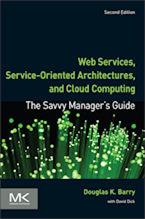Transparent Persistence in Object-Relational Mapping
In object-relational mapping products, the ability to directly manipulate data stored in a relational database using an object programming language is called transparent persistence. This is in contrast to a database sub-language used by embedded SQL or a call interface used by ODBC or JDBC. See transparent persistence vs. JDBC call-level interface.
Using an object-relational mapping product means you will have less code to write and, depending on how you use your data, you might have higher performance over an embedded SQL or a call interface. See caching for object-relational mapping.
With transparent persistence, the manipulation and traversal of persistent objects is performed directly by the object programming language in the same manner as in-memory, non-persistent objects. This is achieved through the use of intelligent caching as this animation shows. For coding examples, see how to access data in a relational database.

Context for Transparent Persistence in Object-Relational Mapping
Related Articles for Transparent Persistence in Object-Relational Mapping
The Savvy Manager's Guide
Douglas K Barry is also the author of a book that explains Web Services, service-oriented architecture, and Cloud Computing in an easy-to-understand, non-technical manner.
Web Services, Service-Oriented Architectures, and Cloud Computing: The Savvy Manager's Guide (Second Edition)
by Douglas K Barry with David Dick
This is a guide for the savvy manager who wants to capitalize on the wave of change that is occurring with Web Services, service-oriented architecture, and—more recently—Cloud Computing. The changes wrought by these technologies will require both a basic grasp of the technologies and an effective way to deal with how these changes will affect the people who build and use the systems in our organizations. This book covers both issues. Managers at all levels of all organizations must be aware of both the changes that we are now seeing and ways to deal with issues created by those changes.

